If you’re a new bearded dragon owner, you might wonder: Can beardies eat cilantro? Is cilantro safe for bearded dragons, or could it cause problems in their diet? This fragrant herb is common in kitchens, but when it comes to reptiles, not all greens are created equal.
In this bearded dragon cilantro diet guide, we’ll explore the nutritional value of cilantro, how often it can be fed, and what other herbs are safe for bearded dragons. You’ll also learn about foods to avoid and how to build a balanced feeding routine. Whether you’re concerned about oxalates or curious about serving sizes, this expert-backed guide has everything you need to feed your beardie with confidence.
Exploring the Question: Can Bearded Dragons Eat Cilantro Safely?
Many new bearded dragon owners wonder, can bearded dragons eat cilantro safely? Understanding the basics of this common herb is essential before adding it to your pet’s diet. In this section, we’ll explore what cilantro is and how it may affect your bearded dragon’s health.
Understanding Cilantro: What Makes It Unique Among Herbs
Cilantro, also known as coriander leaves, is a fragrant herb used worldwide in cooking. It has a distinct, fresh flavor that sets it apart from other herbs like parsley or basil. Unlike many leafy greens, cilantro contains volatile oils that give it a strong aroma. This unique composition can affect how reptiles digest and tolerate it. Additionally, cilantro is rich in antioxidants and certain compounds not commonly found in other herbs. Knowing these qualities helps you decide if it suits your bearded dragon’s diet.
The Nutritional Value of Cilantro for Bearded Dragons
Cilantro offers several nutrients beneficial for bearded dragons. It contains vitamin A, which supports eye health and immune function. It also has vitamin K, important for blood clotting and bone strength. Moreover, cilantro provides small amounts of calcium and fiber, which aid digestion. However, the calcium-to-phosphorus ratio in cilantro is not ideal, so it should not be the main source of calcium. Including cilantro occasionally adds variety but should be balanced with other greens that offer better nutritional profiles.
Common Myths About Feeding Cilantro to Your Beardie
There are many myths about feeding cilantro to bearded dragons. Some believe cilantro is toxic, but this is not true when fed in moderation. Another misconception is that cilantro can cure illnesses—this lacks scientific support. Others think cilantro causes digestive problems, but most beardies tolerate it well if introduced gradually. Dispelling these myths is important for responsible feeding and to avoid unnecessary fear of using beneficial herbs like cilantro.
Weighing the Benefits and Potential Risks of Cilantro in Your Beardie’s Diet
Cilantro can offer some nutritional benefits for your bearded dragon, but it’s important to understand the potential risks as well. In this section, we’ll look at both the advantages and the possible downsides of including cilantro in your beardie’s diet. This will help you make a safe and informed feeding decision.
Essential Nutrients Found in Cilantro That Support Health
Cilantro is rich in vitamins and minerals important for your bearded dragon. It provides vitamin A, which supports immune function and vision. Vitamin K is present too, playing a role in blood clotting and bone strength. Cilantro contains antioxidants that help protect cells from damage. It also offers small amounts of calcium and dietary fiber. While these nutrients are helpful, cilantro should complement a varied diet rather than be the main food source.
Oxalates and Their Impact on Calcium Absorption
Cilantro contains oxalates, natural compounds that can bind to calcium in the digestive system. This binding reduces calcium absorption, which is critical for your beardie’s bone health. Feeding large amounts of cilantro could contribute to calcium deficiency over time. To avoid this, serve cilantro sparingly and balance it with low-oxalate greens. A diverse diet ensures your pet receives enough calcium for healthy growth and maintenance.
Recognizing Negative Reactions and When to Stop Feeding
Most bearded dragons tolerate cilantro well when introduced gradually. However, some may develop digestive issues or allergic reactions. Signs to watch for include vomiting, diarrhea, lethargy, or decreased appetite. If any of these symptoms occur, stop feeding cilantro immediately. Always monitor your pet’s response to new foods and consult a reptile veterinarian if problems continue.
Guidelines for Feeding Cilantro: Frequency, Quantity, and Preparation
Feeding cilantro to your bearded dragon requires care and attention. Knowing how much and how often to feed it is essential. This section explains safe serving sizes, how to mix cilantro with other foods, and the best ways to introduce it gradually.
Appropriate Portions for Hatchlings Versus Adult Bearded Dragons
Hatchlings have different nutritional needs than adults. Young bearded dragons should receive only small amounts of cilantro because their digestive systems are still developing. A tiny pinch once or twice a week is enough for hatchlings. Adult beardies can have slightly larger portions but still should not eat cilantro every day. Overfeeding cilantro may cause nutritional imbalances. Always observe your pet’s reaction and adjust portions accordingly.
Combining Cilantro with Other Greens for a Balanced Meal
Cilantro should never be the only green your bearded dragon eats. Mixing it with other leafy greens like collard greens, mustard greens, and dandelion leaves helps provide balanced nutrition. Combining various greens improves the calcium-to-phosphorus ratio. It also reduces the risks related to compounds like oxalates in cilantro. Offering a colorful variety keeps your beardie interested in food and supports overall health.
How to Introduce Cilantro Gradually and Safely
Start by offering a small amount of cilantro to see how your bearded dragon reacts. Observe for any digestive upset or refusal to eat. If your beardie accepts it, slowly increase the amount over several weeks. Introducing new foods too quickly can cause stress or stomach issues. Always wash cilantro thoroughly to remove pesticides or dirt. Feeding fresh, clean herbs is vital for your pet’s safety.
Beyond Cilantro: Safe and Unsafe Herbs for Bearded Dragons
While cilantro can be a healthy addition to your bearded dragon’s meals, it’s crucial to know which herbs are safe for bearded dragons overall. Not all herbs offer the same benefits, and some can even be harmful.
In this section, we’ll explore a variety of common herbs used in reptile diets, highlight the most recommended safe herbs for bearded dragons, and also list those that should be avoided entirely. Knowing the difference between safe and unsafe herbs ensures your beardie receives a balanced, healthy diet without unnecessary risks.
Comparing Popular Herbs: Parsley, Basil, and Dill vs. Cilantro
Parsley, basil, and dill are popular herbs often offered to bearded dragons. Parsley contains more calcium than cilantro, but it also has higher oxalate levels. Basil is low in oxalates and provides antioxidants. Dill offers vitamins A and C but should be fed in moderation. Compared to cilantro, these herbs vary in nutritional benefits and risks. Offering a mix of herbs can improve diet variety and balance.
Basil is another popular herb that’s often compared to cilantro. If you’re wondering about its safety, check out our detailed guide on Can Bearded Dragons Have Basil Safely?.
Top Leafy Greens to Include in Your Beardie’s Diet
Leafy greens are essential for a balanced bearded dragon diet. Good choices include collard greens, mustard greens, dandelion greens, and turnip greens. These greens are rich in calcium and have a favorable calcium-to-phosphorus ratio. They also provide fiber and vitamins important for digestion and overall health. Rotating different greens helps prevent nutritional deficiencies.
Toxic Herbs and Foods to Avoid for Bearded Dragons
When planning your bearded dragon’s diet, it’s just as important to know which foods to avoid for bearded dragons as it is to know what’s safe. Some herbs and plants can be toxic or interfere with nutrient absorption, leading to serious health issues.
Avoid giving your beardie:
- Avocado – Contains persin, which is toxic to reptiles
- Rhubarb leaves – Highly poisonous, even in small amounts
- Tomato leaves and other nightshades – Can be harmful due to alkaloids
- Spinach and beet greens – Extremely high in oxalates, which block calcium absorption
These harmful herbs and plants can lead to long-term health problems, such as metabolic bone disease or organ failure. As a rule of thumb, always research any new herb, fruit, or vegetable before feeding it to your bearded dragon. When in doubt, stick to a vetted list of safe herbs for reptiles and avoid any plant with a known toxic profile.
Expert Feeding Tips to Keep Your Bearded Dragon Healthy and Happy
Feeding your bearded dragon the right foods is key to its health and happiness. This section offers expert tips on how to prepare cilantro properly, maintain dietary variety, and know when to seek veterinary advice. Following these guidelines will help you support your pet’s well-being every step of the way.
Best Practices for Washing and Preparing Cilantro
Before feeding cilantro to your bearded dragon, it’s essential to clean it thoroughly. Wash the leaves gently under cool, running water to remove dirt, pesticides, and potential bacteria. Avoid using soaps or detergents, as these can be harmful to reptiles. After washing, pat the cilantro dry with a clean towel or use a salad spinner. Chop the leaves into small, manageable pieces to make eating easier for your beardie. Always serve fresh cilantro and avoid wilted or spoiled herbs to ensure your pet’s safety and health.
Ensuring Variety: The Key to a Nutritionally Complete Diet
A varied diet is crucial for your bearded dragon’s overall health. Relying on one herb or green can lead to nutritional imbalances or deficiencies. Rotate different leafy greens, herbs, and vegetables to provide a wide range of vitamins and minerals. Incorporate safe insects and occasional fruits to meet their protein and nutrient needs. Variety also keeps your bearded dragon interested in food and encourages healthy eating habits. Remember, balance is the foundation of a healthy reptile diet.
When to Seek Professional Advice from a Reptile Veterinarian
While most dietary decisions can be managed at home, certain situations require expert advice. Consult a reptile veterinarian if your bearded dragon shows signs of illness, such as weight loss, lethargy, or changes in appetite. Also, seek help if your pet has digestive problems after eating new foods like cilantro. A vet can provide tailored advice on nutrition and address any underlying health issues. Regular check-ups help ensure your beardie stays healthy and thrives on its diet.
conclusion
varied, balanced diet. Cilantro offers some valuable nutrients but also contains compounds like oxalates that require careful feeding. By understanding the benefits, risks, and proper preparation methods, you can safely include cilantro to enrich your beardie’s meals. Always observe your pet’s reaction when introducing new foods, and consult a reptile veterinarian if you have concerns. With the right care and knowledge, cilantro can be a healthy, occasional addition to your bearded dragon’s diet.

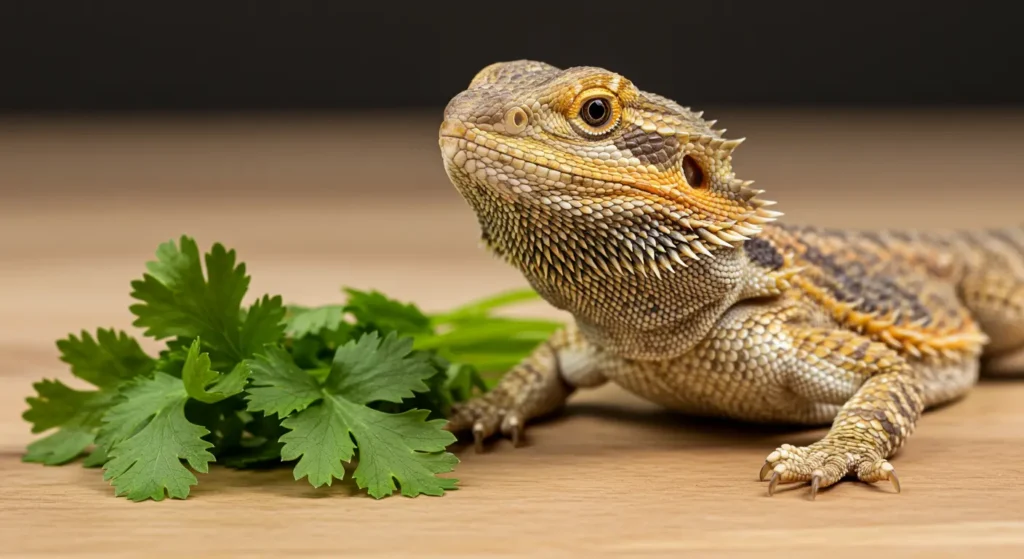
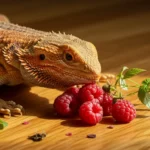
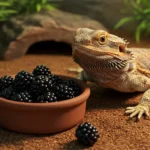
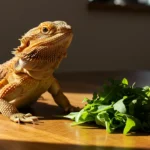
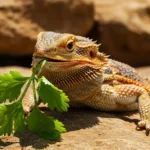
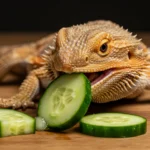
1 thought on “Can Bearded Dragons Eat Cilantro? Expert Advice for New Owners”